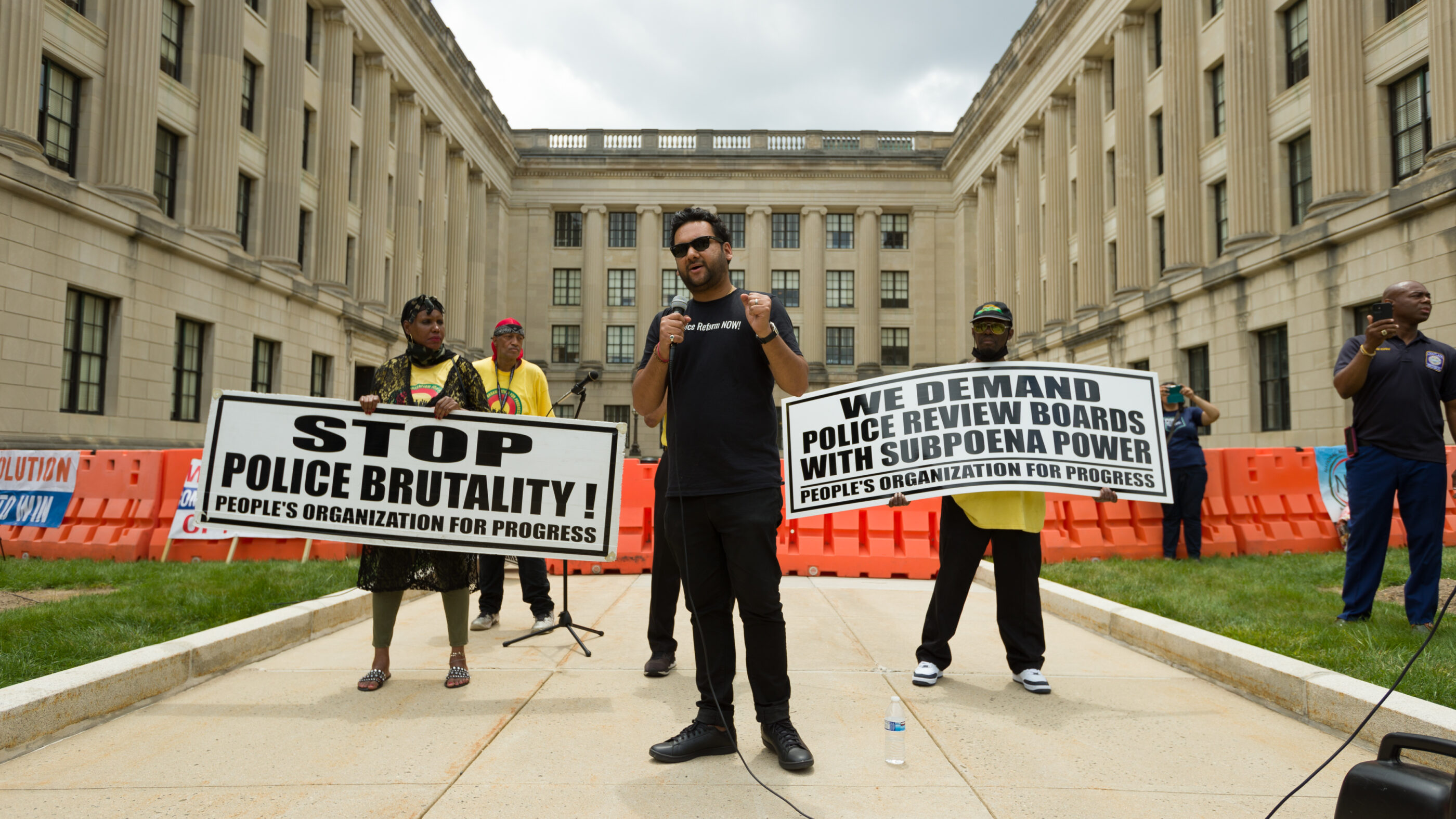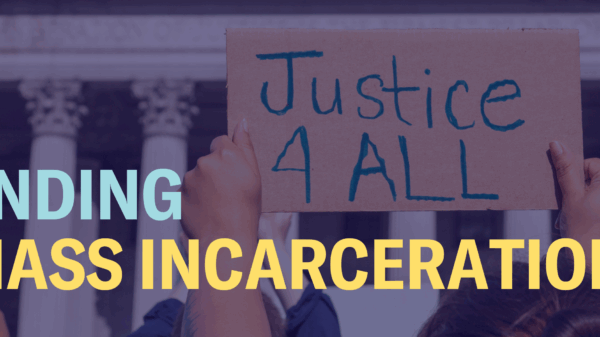Lawmakers’ push to get ‘tough on crime’ is misguided.
When I started at the ACLU of New Jersey in September of 2017, one of the first challenges we faced was a push from the bail bond industry to halt the bipartisan Criminal Justice Reform Act – legislation that was implemented in January of that year to overhaul bail in New Jersey, mandating a presumption of release for almost all defendants – that was passed under Governor Chris Christie and a reflection of overwhelming support from the public.
We centered the experiences of impacted community members, educated the public, and appeared in Federal Court to ensure that bail reform could continue as a necessary change in fairness – all were part of a longer decarceration movement that we’re still fighting for today. Since the law went into effect in 2017, data shows that bail reform worked: the pretrial jail population is down without any meaningful increase in serious crimes.
The ACLU-NJ has always been in the vanguard of advocates pushing to advance racial and social justice – resistance in the face of our goals is nothing new to us. We’re proud of our role in New Jersey’s rise as a national leader in expanding and protecting civil rights.
With our partners, we've expanded access to driver’s licenses so that all qualified drivers can get one, regardless of immigration status. We've pushed for millions of dollars to be allocated to a publicly funded program that provides access to counsel for people who are detained and facing deportation in New Jersey. We’ve taken the historic action to end new, expanded, or renewed contracts with U.S. Immigration and Customs Enforcement. We’ve legalized and decriminalized marijuana in a way that prioritizes reinvestment in our communities. And when COVID-19 wreaked havoc on New Jersey’s prisons and jails, we mobilized to get over 9,100 people released early from their sentences, which saved lives and showed the urgent need – and positive impact – of decarceration.
These victories took years of integrated advocacy and partnered leadership to achieve in the face of opposition – and sometimes virulent backlash. But in New Jersey, we don’t shy away from a fight. And in all these cases, a common goal to prioritize justice meant action could rise above rhetoric. This is the bold action that New Jersey is known for.
Recently, there has been a push from lawmakers to get “tough-on-crime,” despite data showing that violent crime in New Jersey is trending downward. A series of newly introduced bills would increase criminal penalties under the guise of improving public safety and roll back the hard-won success of bail reform – reminding me of the opposition we saw to the very same law back in 2017. And even in his State of the State address, Governor Murphy called for legislative action to increase criminal penalties, allow for more dangerous police chases, and expand surveillance in the name of addressing car thefts, which have been on the decline for several months.
This is a misguided approach. There is no indication that we need to erode bail reform or create more criminal penalties to advance public safety. There is no data to support the notion that rolling back bail reform will reduce crime rates, and there is no evidence to suggest that enhancing penalties for things that are already criminalized will serve as a deterrent.
Criminalizing more things will only result in more crime in our statistics – an unjust and self-perpetuating cycle. There will be more arrests, which will lead to calls for bigger police budgets, which will lead to more police presence in communities already suffering from the impacts of mass incarceration and over-policing. And let’s be real: this will not impact all communities equally. Black and brown communities bear the brunt of aggressive policing and its harmful, often deadly, consequences.
We already know the results of fearmongering for political gain. From the failed drug war to the 1994 federal crime bill, policies rooted in fear and racism devastated communities of color and gained the U.S. notoriety for having the highest rate of incarceration and the largest prison population in the world. History has shown that we can't criminalize our way to public safety and that tough-on-crime policies don’t work. It’s time to time to change the status quo and ensure that our politics serve all New Jerseyans. Too much is on the line: we cannot afford to fuel another era of mass incarceration.
This harmful backlash to criminal legal system reform is one we recognize – and we know voters recognize it, too. Pushing back against this cycle of fearmongering continuously peddled by politicians is essential to advance racial and social justice for generations to come. It’s this cycle of fear that has kept the consequential pieces of legislation that we’re fighting for – like bills to provide transparency for police misconduct, put an end to excessive force tactics, and empower communities to set up civilian complaint review boards with subpoena power – to collect dust on lawmakers’ desks.
We must reclaim our vision for a just and equitable New Jersey – one that prioritizes racial justice, centers the voices of those who have historically not been fully protected by our systems and institutions, and leads the nation in protecting and expanding civil rights.
We must not let fear or self-serving political motivation lead us to repeat a harmful history of criminalization that will fuel over-policing and mass incarceration. Instead, to truly improve public safety, lawmakers must prioritize social and racial justice – and that begins with passing legislation to place checks on police power. New Jersey cannot claim to value justice and the dignity of all until it prioritizes people over police.
This piece was originally published by New Jersey Monitor.



